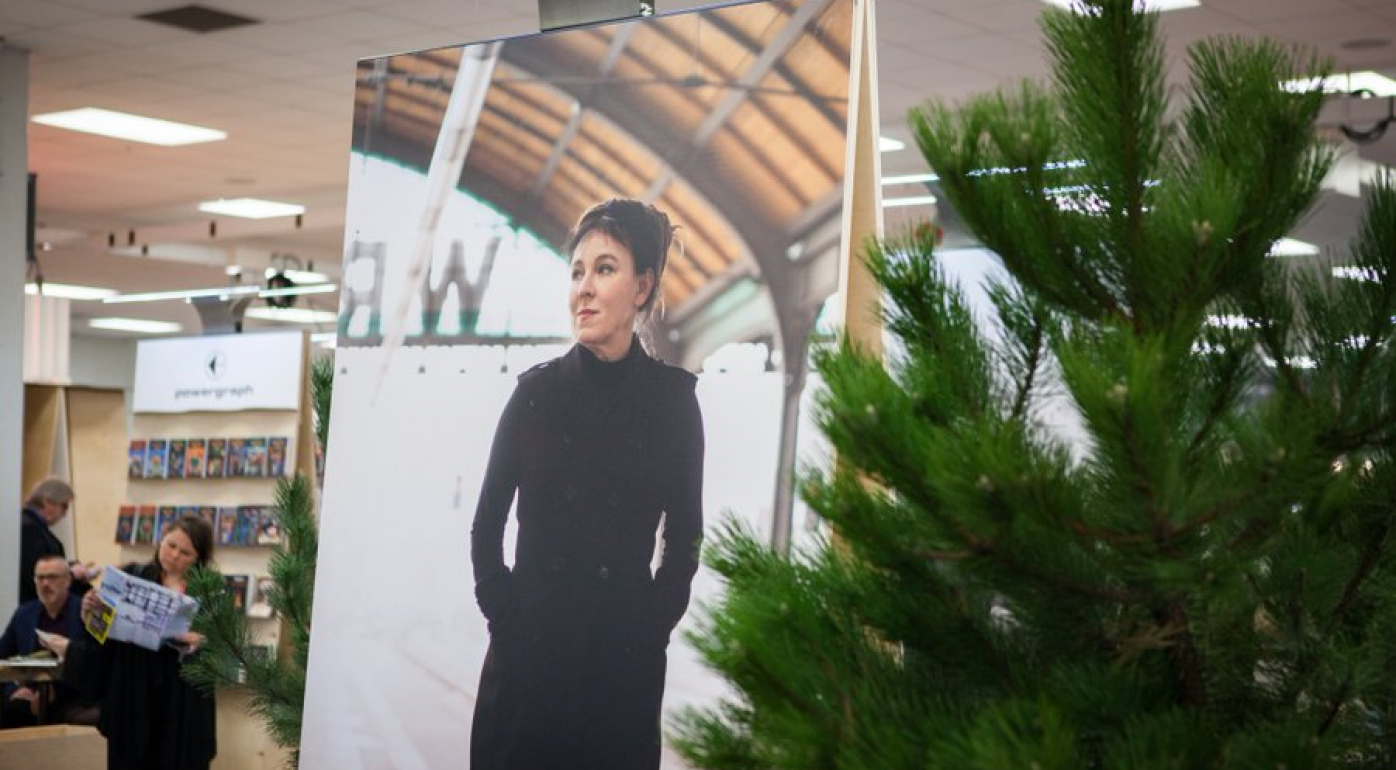To those familiar with Olga Tokarczuk’s work, it was not so much a matter of whether she would win the Nobel Prize, but when. For many years she has been Poland’s leading contemporary novelist, and her nine novels and three short-story collections have been translated worldwide. The English-speaking world was late to the party; despite the publication of House of Day, House of Night (inspired by the remote borderlands of Poland and the Czech Republic where Tokarczuk lives) in 2002, and of Primeval and Other Times (the mythical story of a village at the centre of Europe) in 2010, it took until 2018 for a major breakthrough to come, when Flights (loosely about life on the move, to faraway places and deep inside ourselves, translated by Jennifer Croft) won the Man Booker International award. Drive Your Plow Over the Bones of the Dead (a crime novel about an unlikely eco-warrior) quickly followed, and now, with the Nobel Prize, Tokarczuk’s rightful status as a world-class writer is confirmed. In 2021 Croft’s translation of the historical epic, The Books of Jacob, will be published.
Tokarczuk is a versatile and thought-provoking author. As a psychologist by training, she is curious about people and particularly good at exploring the human mind; while telling us entertaining stories, she also confronts us with philosophical questions and prompts us to look at life from unusual angles. Her writing has a metaphysical quality, and a gently unsettling way of taking us beyond time and place. She’s also skilled at playing with literary form, often structuring her novels in inventive ways that complement her excellent story-telling. Coming from a part of the world where the borders are fluid and history has forced numerous migrations, her work often questions standard associations between place, race and identity. As the Nobel jury stated, she won the prize "for a narrative imagination that with encyclopaedic passion represents the crossing of boundaries as a form of life." At home she is a much-loved personality who has come to be a figurehead for liberal values and cultural creativity.
London Book Fair 
In 2017 Poland was the ‘Market Focus’ country for the London Book Fair. In the year ahead of it, the British Council worked with LBF and the Polish Book Institute on a programme of related events for a group of authors, including Olga Tokarczuk, who was one the Fair’s three writers to be named “Author of the Day”.
Being chosen for the Market Focus definitely gave Polish literature a boost among English readers and publishers. As a translator involved for decades in efforts to secure publication for Polish books in the UK, I noticed the increased interest in the run-up to the book fair. The prospect of Brexit also played a role; Jacques Testard, founder of the small, independent publishing house Fitzcarraldo Editions, has since stated that in 2016 he decided to publish a Polish author as a response to the abuse of Polish immigrants in the wake of the referendum. He had the vision to choose Tokarczuk’s Flights for publication in time for the book fair, and to make maximum use of the promotional opportunity it provided. The combined contributions of the British Council, the Book Institute and Fitzcarraldo were crowned less than a year later by the MBIA win. And now Tokarczuk has achieved the ultimate literary award, the Nobel Prize.
These triumphs generate interest in Polish literature in the UK and all over the world. While Polish poetry already had an audience in the English-speaking world, now Polish fiction and literary non-fiction have a much better chance of finding publishers, and foreign rights sales are increasing. The Market Focus was undoubtedly the key event that helped to turn the corner in the difficult process of trying to launch an outstanding author in English translation, and it has given publishers the confidence to explore the market potential of Polish literature further.
A translator's point of view
From a translator’s point of view, there is no author more deserving of the Nobel Prize for Literature than Olga Tokarczuk. She’s a translator’s dream – so highly appreciative of the contribution that translators make to world literature that recently she wrote an essay in praise of translation (read it in English, translated by Jennifer Croft).
On winning the Nobel Prize she announced her plan to establish a new foundation dedicated to writing and translation. She has always helped her translators in a personal way by answering their questions about the text, but also by being open and generous to them. I think I can safely say that she counts several of us as good friends who are part of her life. I have even had the opportunity to see how she processes her experiences into literature. In Flights, for example, there are small scenes inspired by her visit to my former home in New Zealand, incidents I recognise that aren’t described literally, but have been put through the literary mill, seasoned by her ingenious mind, giving them special meaning.
Now a group of her translators are going to Stockholm for a joint celebration of this extraordinary person who has come to occupy a major role in all our lives. We’re extremely proud of her, and of being able to play our part by spreading her work around the world, because here is a writer whose work has universal meaning and the power to show people of different nations how very much they share.

